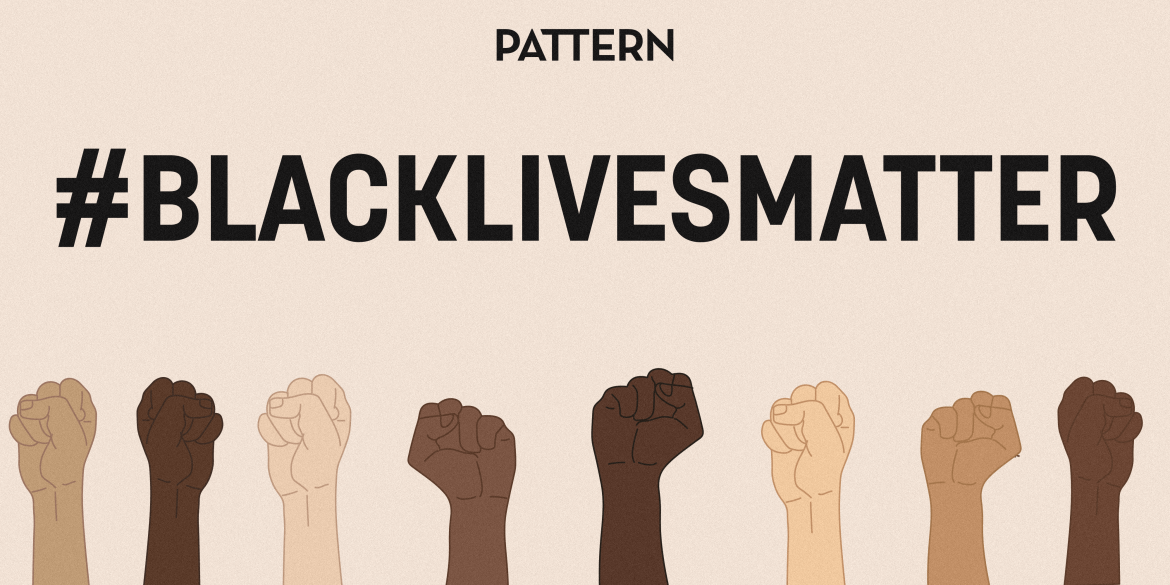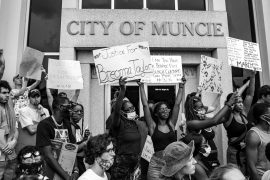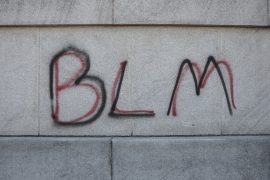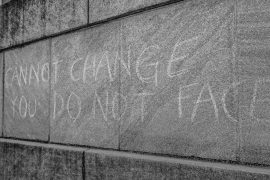Well, here we are. America has found itself in the largest civil rights movement in its history. That’s right; every city and every state plus eighteen other countries have protested injustice, police brutality and inequality for black people in America. This is a wild, painful, fascinating, confusing, and centering time for everyone. Every person alive right now is paying attention and for everyone under 50, well, we are a bit more in shock.
For that reason, it makes sense that I have heard from more white strangers this week than I ever have. I get it. All eyes are on everyone, including your own. This moment is causing major introspection in addition to the external pressure to say something. So, I understand.
I am also in a unique position in Indianapolis because throughout my career, I’ve prompted and welcomed conversations on race. This is what I asked for and finally, we are all talking about racism. But it’s different now, in this moment. Because everyone is coming to me versus me going to them. White organizations, white acquaintances I haven’t talked to in a long time or ever, white friends I talk to all the time and my social media audience – they’re all asking a variety of questions from “What do I do to help?” to “Can you help me understand?” I appreciate it. I do. It’s also overwhelming; and that’s ok.
The “What do I do?” question is an interesting one to me. It’s the one I will address in this piece. It’s reactionary, right? And it’s great. When someone asks what they can do to help, it means they have acknowledged that there is a problem and they want to be part of the solution. What some are missing though, is that while it’s great that you want to be part of the solution – it is actually your problem to solve.
I have a (black) friend who chooses not to answer this question from white people. She’s annoyed that it’s a question at all and feels like it’s been made crystal clear what the task is – speak up against racism. I, on the other hand, will take the time to respond or meet with you, send you resources and everything else I can do. Neither of those approaches are better than the other. What I will ask for in exchange for this urgent conversation – before I rattle off any advice or guidance – is that you first recognize that I do not have the answer because I did not create the problem.
Black people are asking our fellow Americans for equality via the practice of becoming an anti-racist. (Well, millennials taught us that we should no longer be asking, we should be demanding) so maybe, Black people are demanding that our fellow Americans treat us as equal – which sounds obscene to even be saying in 2020. And when that plea became loud enough, some white people heard it and understood it and got to work. They did not ask as many questions because they knew it was their job to fix what their ancestors fucked up. And those aren’t the tips I’m going to offer because there are SO many resources and education materials available and easily findable. Instead, I will suggest some things to think about as you become an ally. Five quick asks of me, a black woman, of my white allies:
1) Acknowledge that this is not our problem to solve. It’s important for us to know that you know you spilled the milk you’re asking us to tell you how to clean up. Since we’re willing to help you clean the milk, we can work together to figure it out. Just please acknowledge that you spilled it and maybe bring a few paper towels to the meeting.
2) Know the demands. Know what the formal Black Lives Matter organization is demanding from our country’s leadership. There are three action steps that BLM is asking for:
- We demand acknowledgment and accountability for the devaluation and dehumanization of Black life at the hands of the police.
- We call for a national defunding of police.
- We demand investment in our communities and the resources to ensure Black people not only survive but thrive.
It helps to fight a cause when you keep in the back of your mind the guiding principles and what we are all fighting for.
3) Get ready to get tired. Three months from now and three years from now? That’s when we will really need you. When there’s not the spotlight that is social media; when it isn’t a trend; and when other white people are simply over it and/or are over hearing about it. It will be harder to bring up then. It will be harder to advocate and speak up when you are the only voice. But that’s when we need you most. Now, racist conversations may happen in even more private rooms and behind closed doors than they were before. If you notice something, mention it. If you see an opportunity to challenge thinking or double-check something for its impact on equality, take it. Thank you for joining us in doing it when you are tired and over it.
4) Don’t fake it. I cannot even believe that’s a thing. Please do not fake it; it hurts the cause and makes us feel like our legally allowable murders aren’t a serious matter to you. This movement is on track to become a short-lived trend – or maybe it already has. The cut-off Black Lives Matter tees are showing up on Insta for selfie support. Some are using it to be in or align their business to what feels like the progressive crowd or the young, in-crowd. Some are buying BLM signs for their storefronts just to prevent property damage, not because they care about the cries of the movement. Maybe worse of all, you can even get paid to protest. Paid to loot. Paid to incite violence. That’s why the path of inauthenticity is dangerous and it’s going to hurt the cause.
5) Be messy. None of us are super buttoned up right now. We are all in a tornado of trauma-inducing events and it’s hard to process everything happening. So, allow yourself the grace to be messy. If you want to make a post but don’t know what to say? Just say you don’t know what to say. It is tough in the land of social media because the spotlight is on everyone, but mostly on white people as black eyes want to see which of their friends and favorite businesses truly support them. That is a lot of pressure. Set and know your intention and be authentic and vulnerable. The fact that you’re opening yourself up to conversation is already a step forward.
Thank you, sincerely and honestly, to those that are feeling something you have never felt before, reading, empathizing and having new conversations. We will get through this together. We’ve got no other choice.




